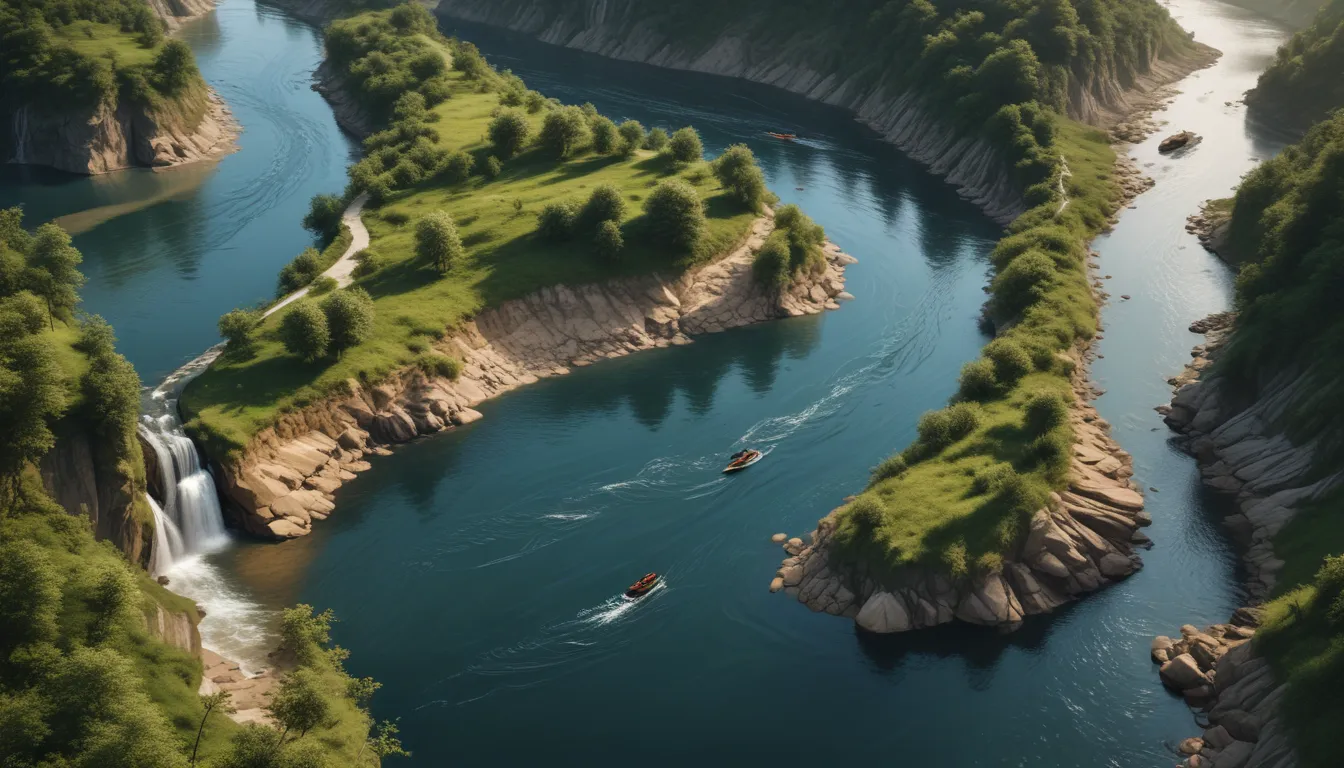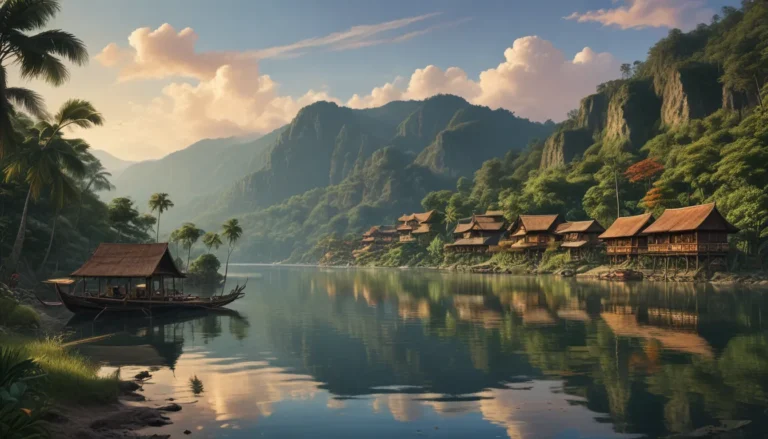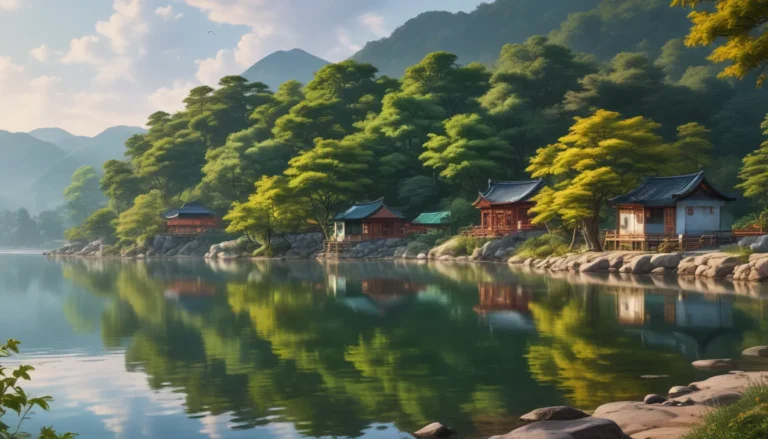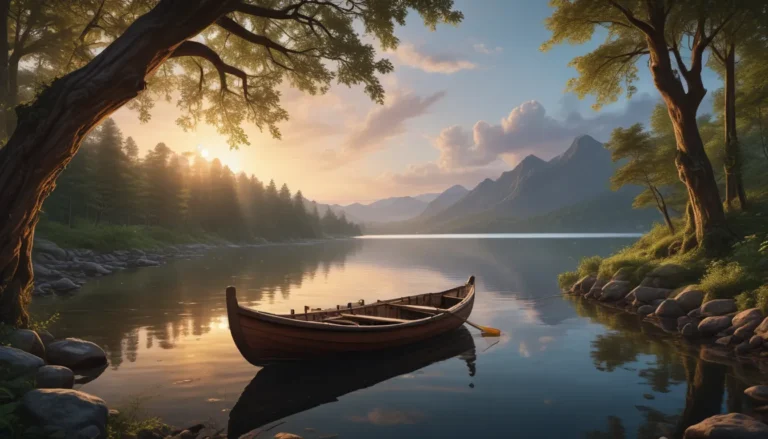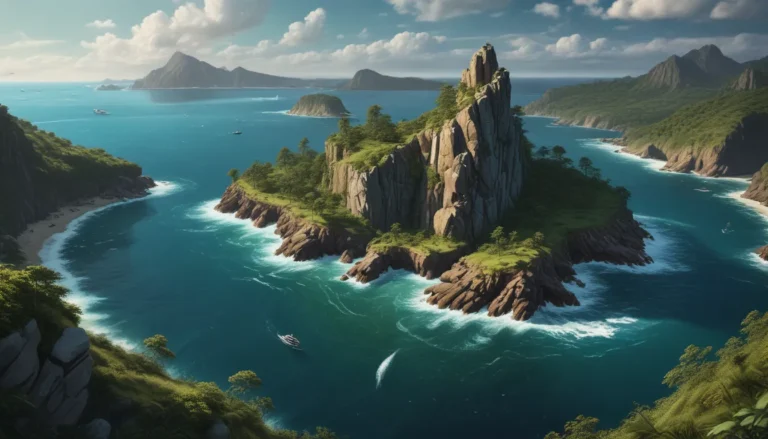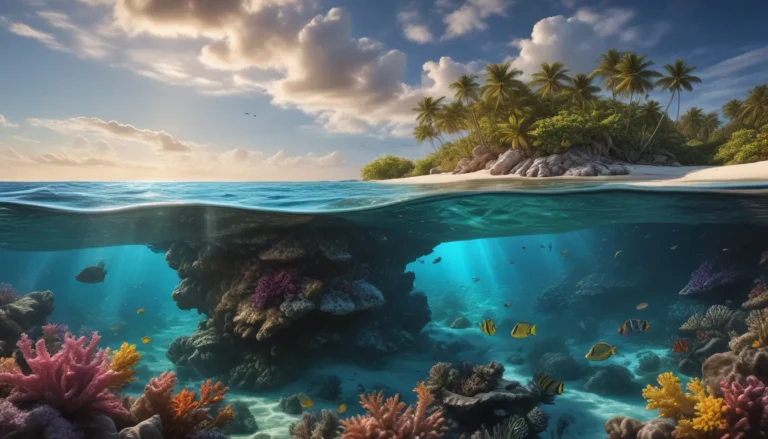The pictures we use in our articles might not show exactly what the words say. We choose these pictures to make you interested in reading more. The pictures work together with the words but don’t take their place. The words still tell you the important facts.
Rivers are more than just bodies of water; they are integral components of Earth's natural ecosystem, shaping landscapes, sustaining life, and captivating the imagination of explorers, artists, and scientists. From the longest river in the world, the Nile, to the mighty Amazon and beyond, rivers hold a plethora of wonders waiting to be explored.
Unlocking the Secrets of Rivers:
1. Vital Lifelines:
- Rivers are crucial for life, providing water for millions of people, shaping breathtaking landscapes, and supporting diverse ecosystems.
- They offer recreational opportunities, cultural significance, and essential services like transportation and habitat provision.
2. Nile: The Longest River:
- The Nile, spanning over 4,135 miles across northeastern Africa, supports diverse ecosystems and serves as a key water source for numerous countries.
3. Types of Rivers:
- Rivers can be ephemeral (flow seasonally) or perennial (with consistent flow year-round) depending on the water sources that feed them.
4. Amazon’s Grandeur:
- The Amazon River in South America carries more water than the next seven largest rivers combined, playing a vital role in biodiversity and climate regulation.
5. Transportation Hubs:
- Throughout history, rivers have been essential transportation routes for trade and travel, contributing to the development of major cities worldwide.
6. Shaping Landscapes:
- Rivers wield immense erosional power, carving out canyons, valleys, and waterfalls, creating stunning natural wonders over time.
Exploring the Historical Significance of Rivers:
7. Ancient Civilizations:
- Ancient civilizations thrived along riverbanks due to access to water for irrigation, fertile soil, and transportation, making rivers ideal for settled communities.
8. Drinking Water Sources:
- Rivers are vital sources of drinking water, essential for human survival, agriculture, and ecological balance in various communities.
9. Mississippi-Missouri Legacy:
- The Mississippi-Missouri River system, the longest in the United States, has played a significant role in the country's history, culture, and economy.
The Ecological Diversity of Rivers:
10. Great Rift Valley Ecosystem:
- The Great Rift Valley in East Africa is home to a network of rivers that shape stunning landscapes, provide water for wildlife, and support diverse ecosystems.
11. Biodiversity Hotspots:
- River systems are known as biodiversity hotspots, hosting a wide array of plant and animal species, contributing to ecological balance.
12. Ganges: A Sacred River:
- The Ganges River in India holds religious significance for Hindus, believed to cleanse sins of those who bathe in its waters, attracting millions of devotees each year.
The Thrills of River Recreation:
13. Recreation Opportunities:
- Rivers offer various recreational activities such as kayaking, canoeing, white-water rafting, and fishing, promoting nature appreciation and conservation efforts.
14. Iconic Bridges:
- Rivers serve as locations for iconic bridges like the Golden Gate Bridge in San Francisco, connecting cities and becoming renowned landmarks.
Environmental Challenges and Conservation Efforts:
15. Threats to River Health:
- Rivers face threats like pollution from industrial activities, habitat destruction, and dam construction, impacting biodiversity and ecosystem health.
16. Human Impact on Rivers:
- Human activities have both positive and negative impacts on rivers, leading to conservation efforts worldwide for pollution control and habitat restoration.
17. Flooding Dynamics:
- River flooding is a natural process that recharges groundwater, deposits fertile sediments, and maintains the health of river ecosystems.
18. The Call for Conservation:
- Understanding and appreciating rivers can inspire sustainable practices and conservation efforts for the preservation of these natural wonders for future generations.
The Promise of Rivers:
Rivers are not just geographical features; they are ecosystems teeming with life, culture, and history. By protecting and conserving rivers, we ensure a sustainable future for all living beings that depend on these lifelines. Let's continue to explore, appreciate, and safeguard the marvels of rivers for generations to come.
